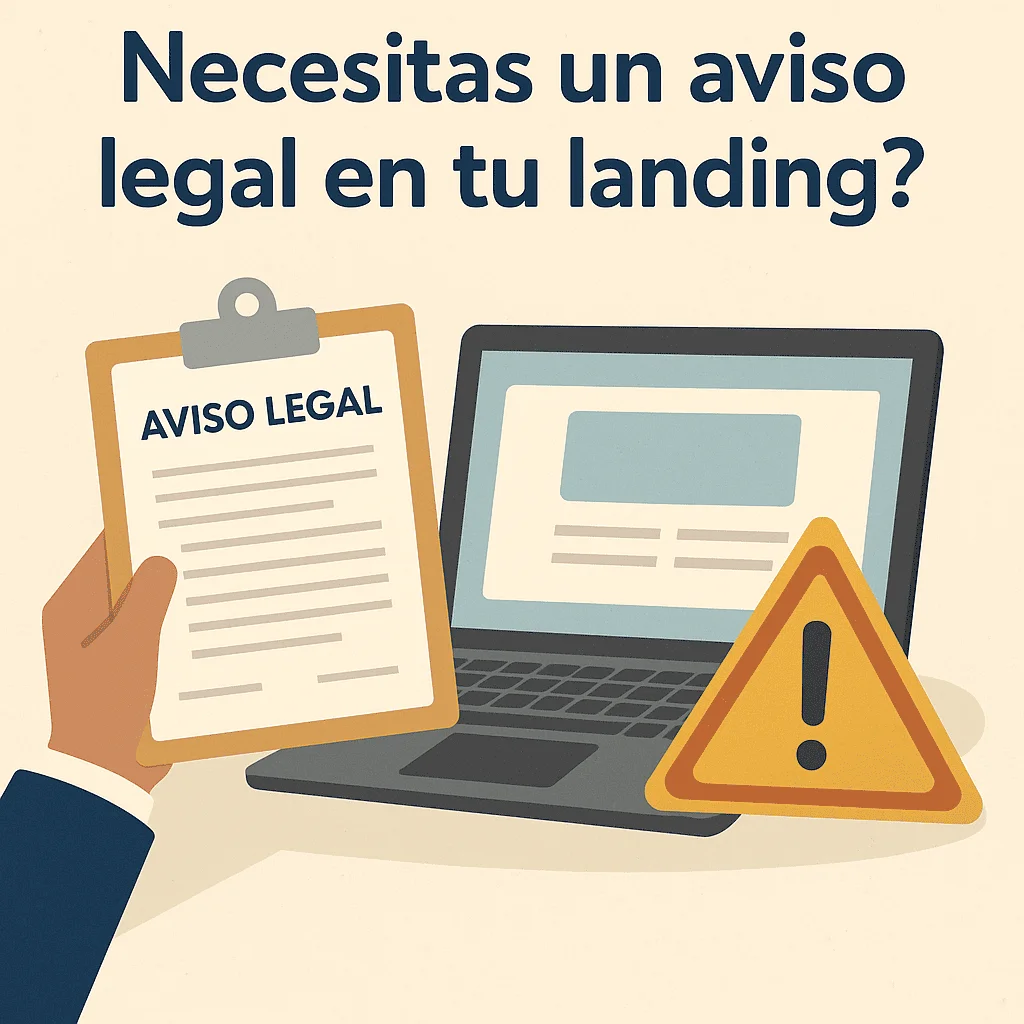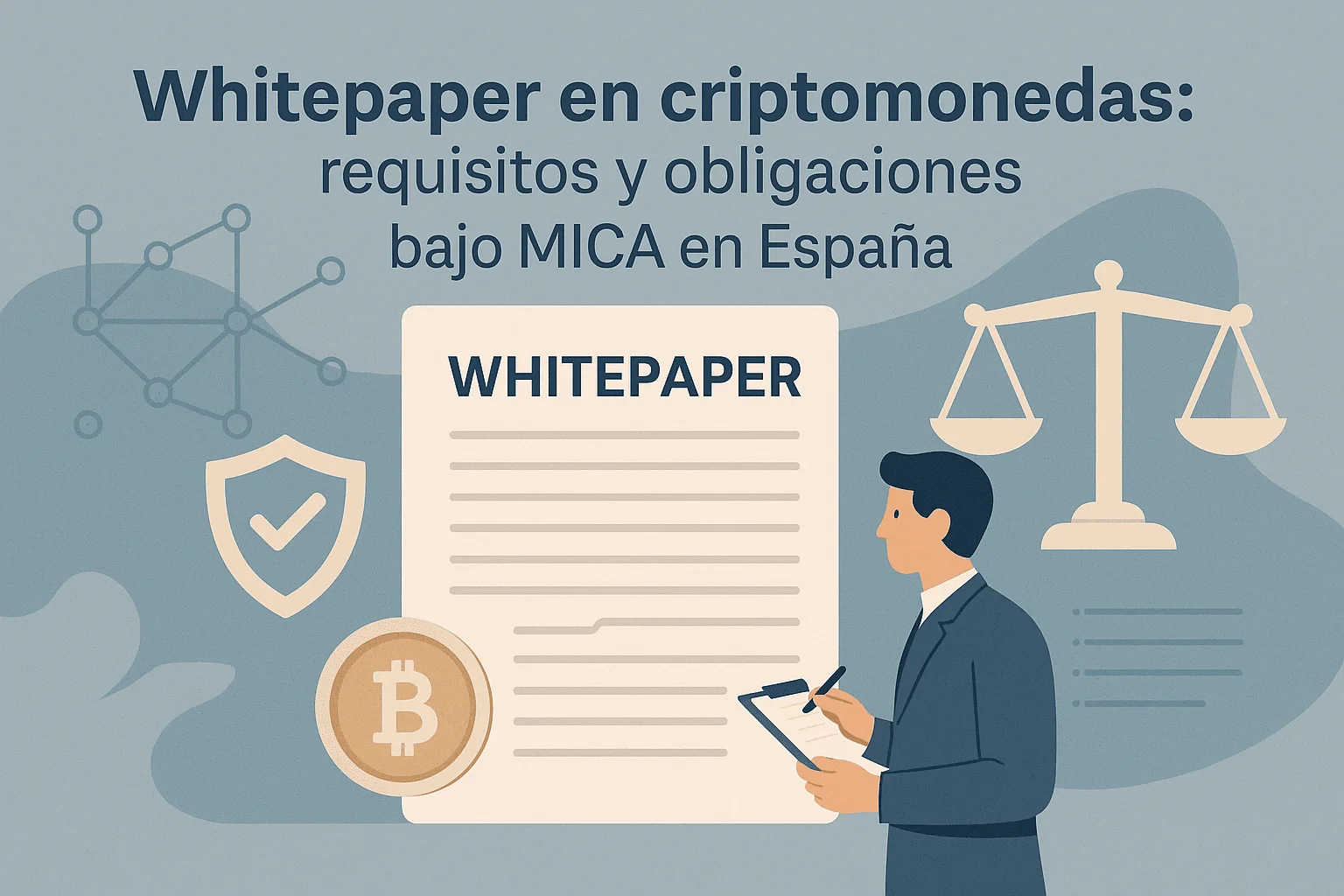Do You Need a Legal Notice on Your Landing Page?
The Trap of Launching Without Complying with the LSSI
You’ve bought the domain, designed a clean layout in Notion or Webflow, and your landing page is ready to capture your first leads. But before launching, someone asks:
“Have you added the legal notice yet?”
And you think… “Why? It’s just a temporary page.”
Bad news: even if you’re not selling anything yet, the law does require you to include a legal notice if your landing page is more than just a personal business card.
In this article, we explain when it’s mandatory to have a legal notice on your website, what it must include, and what happens if you don’t add it.
What Is a Legal Notice and Why Is It Mandatory?
The legal notice is a document accessible from any page on the website that identifies the site owner and complies with Law 34/2002 on Information Society Services and Electronic Commerce (LSSI-CE).
The LSSI states that all websites offering services or information related to an economic activity must include it, even if no direct sales occur.
In other words: if your website is used to promote a future company, collect leads, build branding, or display services... you already need to include a legal notice.
What Must the Legal Notice Include?
Article 10 of the LSSI outlines the minimum information that any professional or corporate website must include:
Website Owner Information
- Full name or company name.
- Tax ID (NIF / CIF).
- Physical address and contact details.
Company Registration Data (if applicable)
- Commercial Registry details: volume, page, sheet, etc.
Professional Association Details (if a regulated profession)
- Professional body, official title, applicable rules.
Contact Information
- Email address, contact form, or customer service phone number.
Terms of Website Use
- Liability limitations, permitted uses, intellectual property, etc.
Additionally:
- If you use cookies, you must include a separate cookie policy.
- And if you collect personal data (forms, newsletters, etc.), you also need a privacy policy compliant with the GDPR.
What Happens If You Don’t Include a Legal Notice?
Yes, it matters. Although many ignore it, the Spanish Data Protection Agency (AEPD) and other authorities can initiate sanctioning procedures for non-compliance with the LSSI.
Penalties for not including a legal notice can reach up to €30,000 in serious cases, although early-stage startups typically face warnings or minor fines (between €900 and €3,000).
Beyond fines, not having a legal notice:
- Reduces your credibility with investors and users.
- Complicates any collaboration with third parties.
- Prevents full compliance with the GDPR if you use forms.
- Can block you from certification, acceleration, or public funding programs.
Can I Use an Automatic Generator?
Not always. Online generators can serve as a base, but:
- They don’t adapt content to your specific activity.
- They often omit key sections like intellectual property, liability disclaimers, or jurisdiction.
- They don’t guarantee compliance if you’re a company or subject to specific obligations.
For tech startups or scalable models, it’s best to customize it properly from the start — and even more so if you’re collecting data.
What If My Landing Page Has No Form or Cookies?
If your website is strictly personal and has no economic purpose, you’re not required to include one.
But if it has any link to a professional or business activity, then yes, you are.
Examples of websites that do require a legal notice, even if they don’t sell anything:
- Pre-launch landing page collecting emails.
- Professional portfolio website.
- Website with contact details to receive commissions or projects.
- Site linking to social media or payment platforms (Patreon, etc.).
Need Help With This?
At Legal Core Labs, we can help you:
- Draft your legal notice from scratch, tailored to your website and sector.
- Integrate it with your privacy and cookie policies.
- Ensure compliance with the LSSI, GDPR, and all applicable regulations.
Your website is your business card.
Make sure it complies with the law from the very first click.



